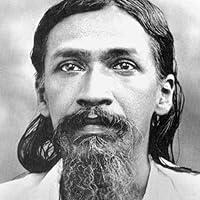
Sri Aurobindo
Sobre el Autor
Sri Aurobindo was a prominent Indian nationalist, yogi, and spiritual teacher who played a crucial role in the Indian independence movement. He was born in Kolkata, where he received a traditional education before moving to England for further studies. His early life was marked by a deep engagement with literature and philosophy, leading him to explore various paths of spiritual realization. Aurobindo's vision was not only political; he sought to integrate spirituality with the pursuit of freedom for India, advocating for a holistic approach to national identity that included cultural and spiritual dimensions.
In the early 20th century, Aurobindo became a key figure in the revolutionary movement against British rule. However, after his imprisonment in 1908, he turned his focus toward spiritual pursuits, developing a unique philosophy that combined Eastern and Western thought. He founded the Sri Aurobindo Ashram in Pondicherry, where he elaborated on his ideas of integral yoga that emphasized the transformation of human consciousness. His writings, including "The Life Divine" and "Savitri," remain influential, offering insights into the spiritual evolution of humanity. Aurobindo's legacy continues to inspire people worldwide, blending spirituality, philosophy, and a vision of a united India.